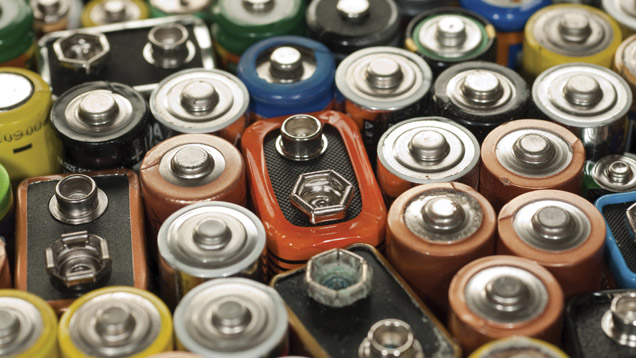What to do with old electronics and dead batteries
 CREDIT: BLACKPIXEL / THINKSTOCK
CREDIT: BLACKPIXEL / THINKSTOCKThe Special Recycling Centre, located in the Bookstore is has boxes for recycling all your old electronics, including batteries.
Upon entering the bookstore in the F Building, a collection of bins sits off to the side and catches your eye. There, waiting on your right, is one of the most important programs set up by Fanshawe’s sustainability co-ordinator, Mary-Lee Townsend – the Special Recycling Centre.
“We set this up to deal with some of the special items that students have that they might not know what to do with,” Townsend said. The list of these items is long, including everything from batteries to ink cartridges to laptops.
“When I thought about what a student would have as far as e-waste goes, the biggest item that they would want to be getting rid of might be a laptop.”
Using the drop-off is as simple as tossing your used batteries in the bin, where they then get picked up and brought to the Receiving Bay. Once there, it all joins the rest of the college’s e-waste and is sent off to OEM Corporation, a company that has been certified by the Ontario Electronic Stewardship Program. The choice of company was important to the college.
“They are really strong as far as their environmental compliance and making sure that they’re doing all of the things that they need to do from a health and safety and environmental perspective,” Townsend said. “All the things we sent to them, it is guaranteed it will be processed here in Canada. That was really important when we set up this program, that we’re not going to see a computer with a Fanshawe sticker on it sitting in a pile overseas.”
The importance of recycling your batteries and electronics can’t be denied either.
“If you have an old battery that you have in your house sitting around in a drawer somewhere, you can see that it’s all corroded because whatever’s inside the battery to give you power has started to leak. That is the type of stuff we want to keep out of the landfill,” Townsend said. “That is the type of stuff that will leak out of the landfill and into the groundwater and can contaminate drinking water and contaminate our rivers and our lakes and our animals and everything, and then it climbs up the food chain and eventually gets to us.”
While the focus may be on electronic waste, pens, markers and highlighters can also be dropped off at your convenience. From the bookstore, these items are sent to Staples where they can be collected and sent off for proper recycling by TerraCycle, a company that turns garbage into useful products.
Not only does the Centre deal with recyclables, but smaller items students want to donate to the Sharing Shop can also be dropped off here, as well as any old textbooks. Those books are sent to help schools in need, with 50 per cent of profits from any sold or recycled books being sent to help charities around the world.
“I know there are a lot of students that are interested to try and help out,” Townsend said. “If they’ve got things they no longer want to use, just take it over to our Sharing Shop.”
So far, the Centre has been a great success, with its accessibility being great for Fanshawe students. “We have to monitor it quite closely because it’s used so much.”
As the boxes fill up and you feel the wonderful warm sensation of doing something good, remember that there is always room for improvement. Any questions or suggestions can be sent to Townsend at sustainability@fanshawec.ca.
“I really want to hear what we can to do make it easier.”














